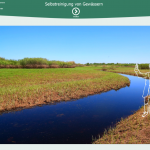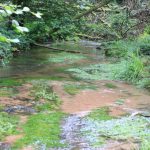Its official now! EcotoxBlog has started spreading its readership in Instagram too!
Continue readingEcotoxblog now also on Instagram!



Its official now! EcotoxBlog has started spreading its readership in Instagram too!
Continue readingMeet our new Senior Editor and Social Media Manager, M. Sandhya. She is pursuing her Master’s in Ecotoxicology and currently involved in her internship at the Julius-Kühn Institute (Siebeldingen).
Continue reading
Our former Senior Editor and Social Media Manager Ve, Dr. Verena Sesin, is engaging in new challenges in her professional career. We wish her all the best in her future endeavors.
Continue reading
Our current Senior Editor and Social Media Manager, Verena Sesin, is beginning a new chapter in her life, thus the EcotoxBlog is looking for a new Editor and Social Media Manager starting September 2021. Please apply by August 22. Please note that only affiliates of the University of Landau are eligible for this position.
Continue reading
Die 25. Jahrestagung der SETAC GLB findet vom 7.9 – 8.9 virtuell statt mit dem Leitthema “Anthropogene Stoffe in einer sich ändernden Welt – Bewertung auf dem Prüfstand der Realität”.
Continue reading
In June 2021, Elena Adams successfully defended her Ph.D. on pesticide effects on German amphibians and consequences for their risk assessment in the European Union.
Continue reading
This blogpost presents the subproject Knowledge Systems of the INTERRG project ecoserv, which deals with the knowledge transfer and communication of ecosystem services to pupils.
Continue reading
Lamin Jaiteh talks about his MSc thesis in which he planned and organized a national surface water monitoring scheme for his home country The Gambia, West Africa, where it is intended to be implemented to improve water quality and protect natural resources.
Continue reading
In this post, Paul Löffler, student in the MSc Ecotoxicology program at University of Koblenz-Landau, provides some background on the review paper on vaccine myths that he published in Frontiers in Immunology – Vaccines and Molecular Therapeutics.
Continue reading
This article presents the subproject Water and Climate Regulation of the INTERREG project ecoserv. The subproject further researches the self-purification potential of streams.
Continue reading